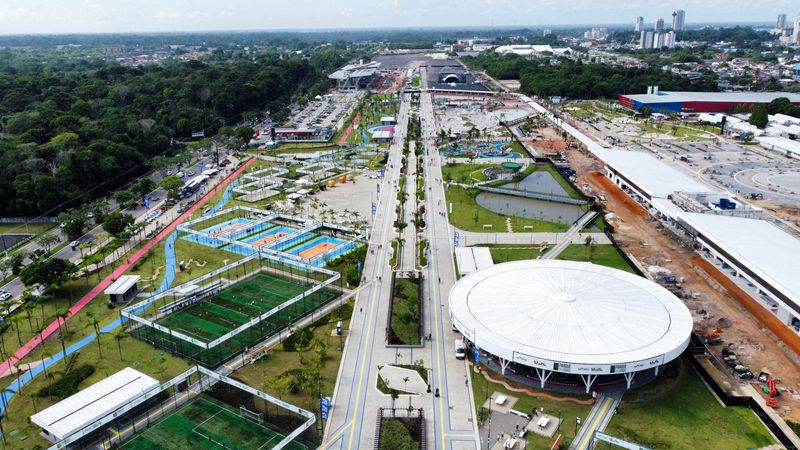By Catarina Demony
(Reuters) -Hundreds of environmental and human rights groups have urged COP30, the global climate summit to be held in Brazil this November, to confront the historical roots of the climate crisis, and put reparations on the agenda.
The letter argues that historical crimes, such as enslavement and colonialism, created global inequalities in resource access, drove asymmetrical contributions to emissions, increased vulnerability to disasters, and continue to exclude many from climate decision-making.
“There can be no true climate justice without reparatory justice,” the signatories said.
Launched by organisations such as Brazil’s Instituto Luiz Gama and the Caribbean Pan African Network earlier this week, it has now been signed by more than 240 organisations and public figures, including Amnesty International USA and local chapters of Black Lives Matter.
Colombia’s environment minister has also backed the letter. It will be sent to the Brazilian government and the United Nations next week.
“The climate crisis did not arise recently — it is a continuation of centuries of greenhouse emissions, extraction, dispossession, and racial violence,” the letter said, urging COP30 to address historical injustices and the need for reparations as part of any negotiation on climate.
The letter said that it would be significant for Brazil, which received more enslaved people than any other country and today has the largest population of African descendants outside Africa, to take the lead on this call.
It urged Brazil and COP30 to create an official space at the summit dedicated to climate justice and reparations, led by Africans, people of African descent, and Indigenous communities.
It also asked Brazil to incorporate these themes into its political agenda and actively facilitate such conversations at COP30.
Centuries-old demands for reparations have been gaining renewed momentum worldwide but the backlash against them has also been growing, with critics saying modern states and institutions should not pay or make other amends for historical wrongs.
Anielle Franco, Brazil’s minister of racial equality, told Reuters last year the wrongs of the past had long gone unrecognised by those in power, and that reparations were about “building a more dignified future.”
(Reporting by Catarina Demony; Editing by Marguerita Choy)

